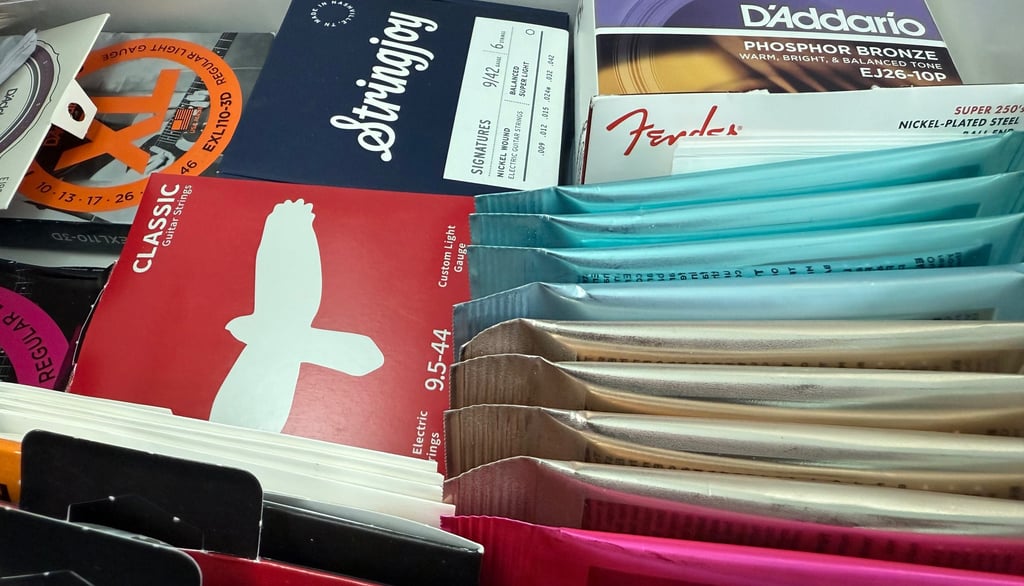Why String Gauges Matter: A Guide for Guitarists
Chosing a guitar string gauge can be a personal decision.
TECH TIPS
Kenny P.
7/4/20251 min read


Why String Gauges Matter: A Guide for Guitarists
String gauge, the thickness of your guitar strings, plays a major role in how your instrument feels and sounds. For electric and acoustic guitars, gauges usually range from light (like .009 or .010) to heavy (such as .012 or .013), but they are built differently. Electric strings are made from magnetic metals like nickel or stainless steel to work with pickups, while acoustic strings are typically bronze or phosphor bronze to produce a bright, resonant tone that suits the natural projection of the guitar’s body.
Lighter gauge strings are easier to press, bend, and play, which is why many lead guitarists and beginners prefer them. Jimi Hendrix often used .010s, and B.B. King played extremely light .008s, saying heavier strings made him work too hard. On the other hand, Stevie Ray Vaughan used heavier .011 or .012 gauge strings for a thicker tone and stronger attack. Acoustic players follow a similar pattern. Taylor Swift uses lighter strings for comfort and smooth playability, while Neil Young uses heavier ones to get a fuller, more powerful sound.
The best string gauge for you depends on your playing style, tuning preferences, and what feels right under your fingers. Fingerstyle players often favor lighter strings for touch and flexibility. Rhythm players or those who use alternate tunings may lean toward heavier gauges for stability and tone. Trying out different sets is the best way to find what suits your music and makes your guitar come alive.
Ken P.

Stay up to date
© 2025. All rights reserved.
